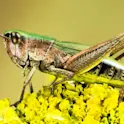
Environment
05 May 2022
How bees prove to be skilled mathematicians and 3 other amazing science stories you may have missed
By Colm Gorey, Science Communications Manager Image: Shutterstock.com At Frontiers, we bring some of the world’s best research to a global audience. But with tens of thousands of articles published each year, many often fly under the radar. Here are just four amazing papers you may have missed. What are the odds? Honeybees join humans as the only animals known to be able to tell the difference between odd and even numbers A study published to Frontiers in Ecology and Evolution has created quite a ‘buzz’ among academics after it was found honeybees possess maths skills beyond what was originally thought. Previous studies have shown honeybees can learn to order quantities, perform simple addition and subtraction, match symbols with quantities, and relate size and number concepts. However, this time around, the bees were tasked with solving a parity experiment which involves categorizing two sets of objects as ‘odd’ and ‘even’. The bees were split into two groups: one trained to associate even numbers with sugar water and odd numbers with quinine, a bitter-tasting liquid familiar to gin drinkers. The second group was trained in the reverse with odd numbers linked to sugar water, and even numbers with quinine. Amazingly – […]













